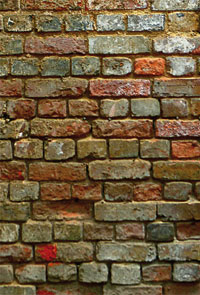
|
Once, to kick off a heated press conference, Henry Kissinger apparently said «I hope that you have the right questions to my answers». Perhaps the sentence sounds like pure cynicism, but one must recognise that his is how many press conferences are prepared. The subsequent somersaults or slithering and sliding required to make the answers fit the questions are just a matter of skill and manoeuvring. The idea of answering by changing the question is also a common complaint in the screenplays of courtroom dramas: «I did not ask you that!». Many serious and responsible professionals are exasperated and irritated when their interlocutor subtly or outrageously changes one question for another: school teachers, official clerks over the counter, radio and television interviewers, examiners in general, survey takers… However, the sentence «any answer may change the question» is really fundamental when it comes to acquiring new knowledge. Indeed, the value of a good answer is not always that it fits the question, but rather in the noble talent of redirecting or reviving a great debate, almost always by rejecting one question to ask another question. For example, a question can be rejected when it is a false question, namely, when the question contains internal or external contradictions in its formulation. Let us start by mathematical inconsistency. Three friends have a beer in a bar. The account comes to 30 euros and each slaps 10 euros on the table. The waiter takes the money to the till but the bar owner –who has been watching the lively group– returns 5 euros to the waiter, saying with a wink: «Here, give them a discount, they’ll be good customers». The waiter returns to the table thinking that 5 euros is too much, so he returns just 3 euros and pockets the remaining 2 euros. To recap: each pal has paid 9 euros (10 minus 1 off), so they have paid 27 euros for the drinks altogether. The waiter has pocketed 2 euros, so, since 27 plus 2 equals 29, where has the missing euro gone to reach the original 30 euros? I suggest you think for 45 seconds before continuing… *** There is no answer, because there is no valid question. Indeed, the question «where is the missing euro?» is false, because it includes a false hypothesis. There is no euro missing because the amount required is the total amount paid (27 euros paid by the friends), which is equal to the total amount charged (25 kept by the owner plus two filched by the waiter). Instead a valid question would be, for example: Where are the two missing euros between the amount the friends know they paid and the amount the bar owner believes they paid? The physicists Michelson and Morley spent half their lives trying to experimentally prove the existence of ether, a hypothetical fluid whose existence relied on the application of the physics of that epoch. How else can we explain that electromagnetic waves of sunlight reach the Earth if between the Sun and the Earth there is but empty space? The question is invalid because it contains a false hypothesis, basically the mistaken physics of that epoch. In Albert Einstein’s famous paper of 1905 he devoted just one sentence to ether as new ideas had eliminated old questions and revolutionised physics. Undoubtedly: to change the answer is evolution but to change the question is revolution. Jorge Wagensberg. Scientific Director of La Caixa Foundation, Barcelona. |
 Jorge Wagensberg Jorge Wagensberg
«The value of a good answer is not always that it fits the question, but rather in the noble talent of redirecting or reviving a great debate» |





